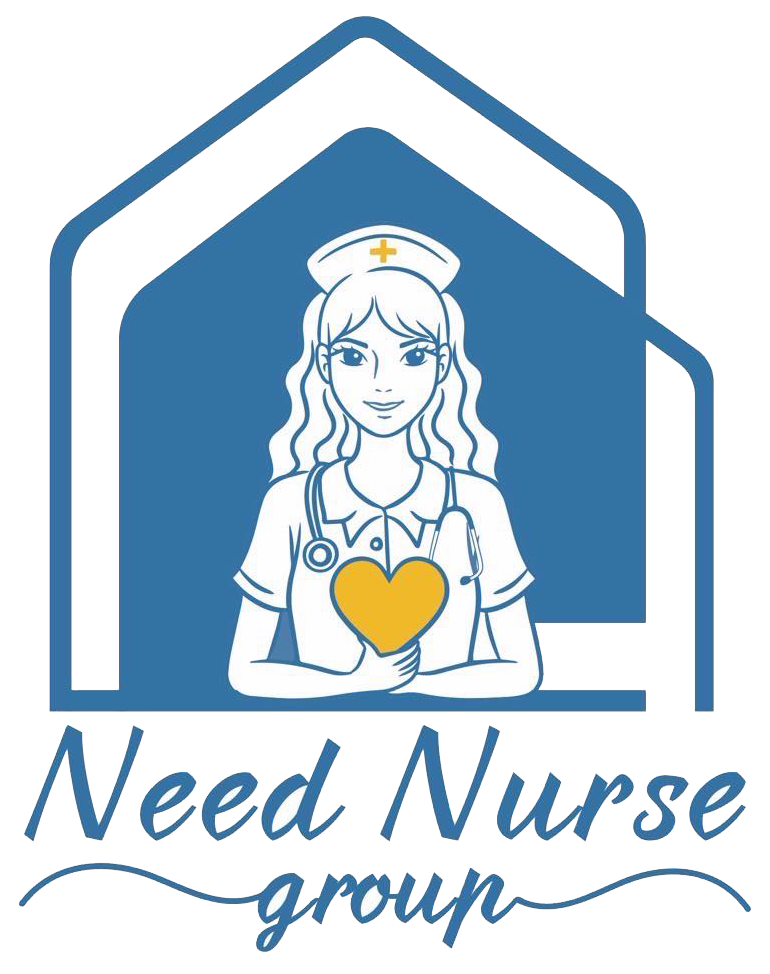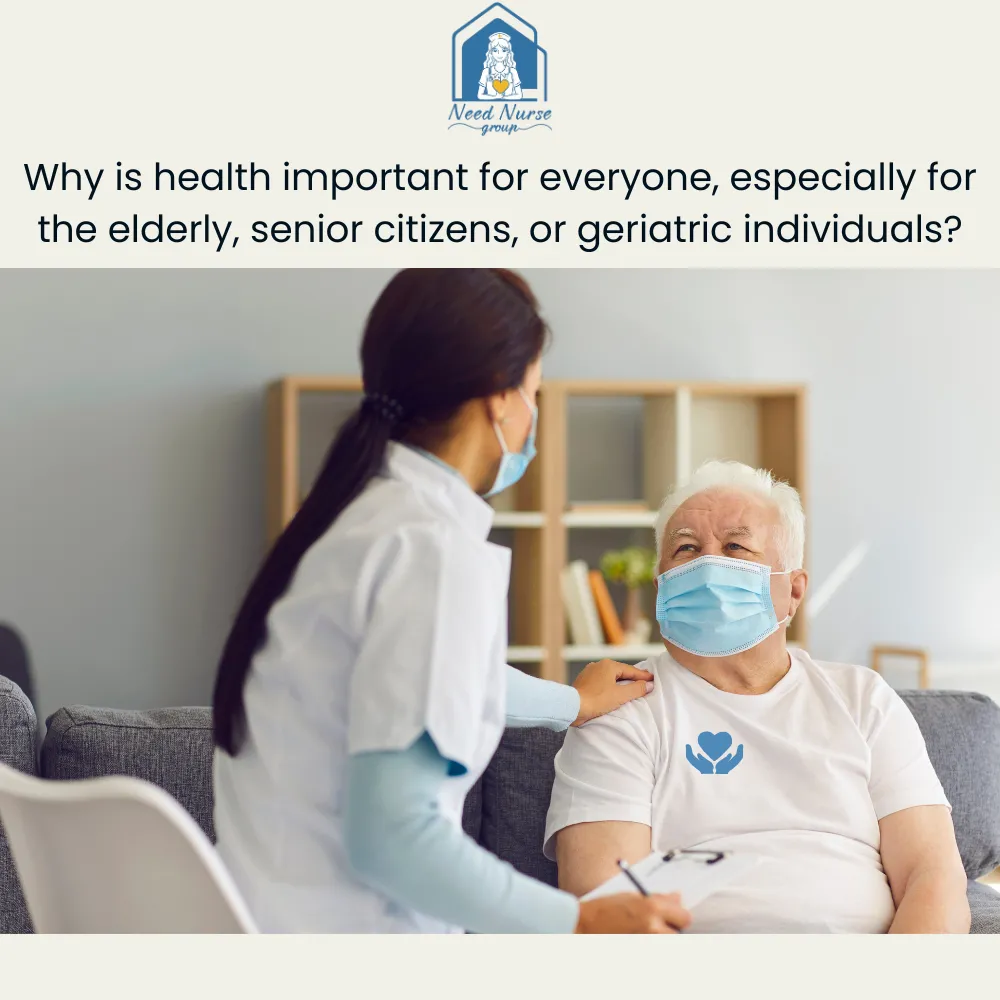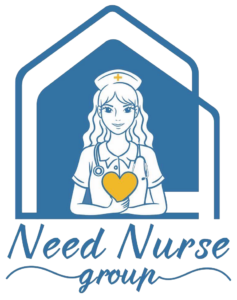Why is health important for everyone, especially for the elderly, senior citizens, or geriatric individuals?
This includes addressing health problems, health screening, mental health, health plans, and gadgets designed for the elderly.Maintaining good health is crucial for everyone, but it holds particular significance for the elderly, senior citizens, and geriatric individuals.study published in BMC Health Services Research by Stanisława Golinowska et al. (2016), titled “Health Promotion Targeting Older People,” found that “a healthy lifestyle in the elderly, including exercising, quitting smoking, limiting alcohol consumption, and participating in learning activities, can improve quality of life and lengthen life expectancy.”
As people age, their bodies undergo various changes that can affect physical activity, psychological well-being, mental health, and nutritional needs. Good health enables older adults to maintain independence, perform daily activities with ease, and enjoy a higher quality of life. Physical activity helps in preserving mobility and strength, reducing the risk of falls and chronic diseases. Psychological well-being and mental health are essential for combating loneliness, depression, and cognitive decline, ensuring that seniors remain engaged and mentally sharp. Proper nutrition supports overall bodily functions, boosts the immune system, and prevents malnutrition and related health complications. Additionally, addressing health problems early through regular screenings and having comprehensive health plans can manage existing conditions effectively and prevent new ones from developing. Utilizing specialized gadgets designed for the elderly can further enhance safety, monitor health metrics, and facilitate better communication with healthcare providers. In essence, prioritizing health in older age not only extends lifespan but also enriches the remaining years with vitality and fulfillment.
Achieving Optimal Health: Essential Tips for Seniors
- Stay Proactive with Health Screenings: Keep yourself ahead of potential health issues by scheduling regular check-ups and preventive tests. Early detection and management can make all the difference in maintaining your well-being.
- Nurture Your Mental Health: Embrace strategies and support systems that bolster your emotional resilience and cognitive sharpness. Engaging in social activities, mindfulness practices, and mental exercises can enhance your overall happiness and mental clarity.
- Enjoy Balanced Nutrition: Fuel your body with delicious, nutrient-rich diets specifically tailored to meet the unique dietary needs of older adults. Proper nutrition supports energy levels, strengthens the immune system, and promotes longevity.
- Choose Comprehensive Health Plans: Invest in insurance and care plans that are designed to address the distinct healthcare requirements of seniors. Comprehensive coverage ensures you receive the necessary medical support and peace of mind.
- Prevent Common Health Problems: Take proactive steps to avoid age-related ailments and injuries. Simple actions like regular physical activity, maintaining a safe living environment, and staying informed about your health can significantly reduce risks.
- Leverage Gadgets Designed for the Elderly: Enhance your daily living with innovative technology and devices crafted to monitor your health, ensure safety, and simplify everyday tasks. From wearable health trackers to smart home systems, these gadgets can greatly improve your quality of life.
Embracing these strategies can lead to a healthier, more fulfilling life in your golden years. Prioritize your well-being today to enjoy a vibrant and active tomorrow.
Key Factors to Consider for Maintaining Good Health
Good health for humans, including elderly health and people health, encompasses a state of complete physical, mental, and social well-being, not merely the absence of disease. For individuals, maintaining good health means having the energy and functionality to perform daily activities, pursue personal goals, and enjoy a fulfilling life. Specifically for the elderly, good health involves preserving independence, managing age-related changes, and maintaining a high quality of life despite the natural aging process.
Health Screening for the Elderly
Health screening refers to regular medical examinations and preventive tests designed to detect potential health issues before they become serious. These screenings are crucial for early diagnosis and effective management of diseases such as hypertension, diabetes, and cancer. For example, annual blood pressure checks can help identify and control hypertension in seniors, reducing the risk of heart disease and stroke.
Mental Health for the Elderly
Mental health involves maintaining emotional stability, cognitive function, and psychological resilience. It is essential for coping with stress, forming relationships, and enjoying life. Strategies to support mental health include engaging in social activities, practicing mindfulness, and seeking professional counseling when needed. For instance, participating in community groups can help elderly individuals combat loneliness and enhance their sense of belonging.
Nutrition for the Elderly
Nutrition is the intake of a balanced diet that provides the necessary vitamins, minerals, and energy to support bodily functions. Proper nutrition is vital for maintaining muscle mass, bone density, and a strong immune system, especially in older adults. An example is incorporating a diet rich in fruits, vegetables, lean proteins, and whole grains to prevent malnutrition and support overall health in the elderly.
Health Plans for the Elderly
healthcare needs of individuals, particularly seniors. These plans ensure access to necessary medical services, medications, and support systems. For example, a elderly health plan might include coverage for regular doctor visits, prescription drugs, and physical therapy, providing peace of mind and financial protection against unexpected health expenses.
By focusing on these key factors—health screening, mental health, nutrition, and health plans—individuals and especially the elderly can maintain and enhance their health. Implementing regular screenings ensures early detection of potential issues, supporting mental health fosters emotional and cognitive well-being, proper nutrition fuels the body’s needs, and comprehensive health plans provide the necessary resources and support. Together, these elements create a robust foundation for sustaining good health and improving the quality of life at any age.
10 Common Health Problems Frequently Experienced by the Elderly
Research indicates that as the population ages, the prevalence of certain health problems among the elderly increases significantly. Understanding these common issues is essential for providing effective care and improving the quality of life for older adults. Chronic diseases like arthritis, diabetes, and hypertension are among the most prevalent, affecting millions worldwide. Here are ten common health problems frequently experienced by the elderly, along with their causes and treatments:
- Arthritis: This inflammatory condition affects the joints, causing pain and stiffness. Causes include wear and tear of cartilage and autoimmune responses. Treatment typically involves pain management through medications, physical therapy, and lifestyle modifications such as exercise and weight management.
- Diabetes: Type 2 diabetes is common in older adults due to factors like insulin resistance and reduced physical activity. Managing diabetes involves monitoring blood sugar levels, adhering to a balanced diet, regular exercise, and taking prescribed medications or insulin therapy.
- Hypertension: High blood pressure can lead to serious complications like heart disease and stroke. Causes include genetics, poor diet, lack of exercise, and stress. Treatment includes lifestyle changes, such as a low-sodium diet and regular exercise, along with antihypertensive medications.
- Osteoporosis: This condition weakens bones, making them more susceptible to fractures. According to a study by Sarafrazi, Neda et al., from the NCHS Data Brief titled “Osteoporosis or Low Bone Mass in Older Adults: United States, 2017–2018” an estimated 10.2 million people aged 50 and over in the United States had osteoporosis, while about 43.3 million more had low bone mass in 2010. Osteoporosis is caused by decreased bone density due to aging, hormonal changes, and inadequate calcium and vitamin D intake. Treatment typically includes medications to strengthen bones, calcium and vitamin D supplements, and weight-bearing exercises.
- Heart Disease: Including conditions like coronary artery disease and heart failure, heart disease is a leading cause of mortality in the elderly. According to a study by Reena Tiwari et al.,from the Current Cardiology Reviews titled “Analysis of Heart Rate Variability and Implication of Different Factors on Heart Rate Variability”.HRV is influenced by various factors such as pathological, physiological, psychological, environmental, lifestyle factors, and genetic factors.The Individuals with lower HRV are at a higher risk of developing cardiovascular conditions such as hypertension, myocardial infarction, and heart failure.Causes range from high cholesterol and hypertension to lifestyle factors like smoking and sedentary behavior. Treatments include medications, lifestyle modifications, and surgical interventions when necessary.
- Cognitive Decline and Dementia: Aging can lead to reduced cognitive functions, with dementia being a severe form characterized by memory loss and impaired reasoning. Causes include Alzheimer’s disease and vascular issues. Management involves medications to slow progression, cognitive therapies, and supportive care for daily activities.
- Depression and Anxiety: Mental health issues are common due to factors like isolation, loss of loved ones, and chronic health conditions. According to a study by Anna S. Engels et al.,from the Cognitive, Affective, & Behavioral Neuroscience titled “Co-occurring anxiety influences patterns of brain activity in depression”. Depression is associated with rightward frontal lateralization in the dorsolateral prefrontal cortex (DLPFC) and reduced activity in the right inferior frontal gyrus (IFG).Causes are multifaceted, including biological, psychological, and social factors. Treatment includes psychotherapy, medications, social support, and lifestyle changes such as regular physical activity.
- Respiratory Diseases: Conditions like chronic obstructive pulmonary disease (COPD) and pneumonia are prevalent among the elderly. Causes include smoking, environmental factors, and weakened immune systems. Treatment involves medications, pulmonary rehabilitation, and preventive measures like vaccinations and avoiding smoke exposure.
- Incontinence: Loss of bladder or bowel control affects many older adults, often due to weakened muscles, neurological conditions, or medications. Management includes pelvic floor exercises, medications, absorbent products, and in some cases, surgical interventions.
- Vision and Hearing Loss: Age-related macular degeneration, cataracts, glaucoma, and hearing loss are common sensory impairments. Causes include natural aging processes and exposure to environmental factors. Treatments involve corrective lenses, medications, surgeries, and the use of hearing aids or other assistive devices.
Advice for Healthcare for the Elderly:
To effectively manage these health problems, a proactive and comprehensive approach to healthcare is essential for the elderly. Regular health screenings can detect issues early, while maintaining mental health through social engagement and support systems is crucial. Ensuring proper nutrition and adherence to personalized health plans can prevent and manage chronic conditions. Additionally, utilizing specialized gadgets and technologies designed for the elderly can enhance safety, monitor health metrics, and facilitate better communication with healthcare providers. By addressing these factors holistically, caregivers and healthcare professionals can significantly improve the well-being and quality of life for older adults.
What makes supporting healthcare for the elderly essential for achieving good health?
Supporting healthcare for the elderly is essential for achieving good health, particularly from scientific and medical perspectives. As individuals age, they become more susceptible to chronic diseases, cognitive decline, and physical impairments, making comprehensive healthcare crucial. Preventive healthcare plays a vital role by identifying risk factors early through regular screenings and vaccinations, thereby reducing the incidence and severity of illnesses such as heart disease, diabetes, and cancer. Advances in medical research have highlighted the importance of personalized treatment plans that address the unique physiological changes in older adults, ensuring more effective management of existing conditions and prevention of new ones. Additionally, integrating multidisciplinary approaches that combine medical treatments with physical therapy, mental health support, and nutritional guidance can significantly enhance overall well-being. Technological innovations, such as telemedicine and wearable health devices, also provide continuous monitoring and timely interventions, improving access to care and patient outcomes. Furthermore, preventive measures like vaccinations, regular health screenings, and lifestyle modifications are scientifically proven to extend lifespan and enhance the quality of life for the elderly. To maximize the benefits of these healthcare strategies, it is crucial for elderly individuals to engage in regular medical check-ups. These check-ups not only facilitate early detection and treatment of potential health issues but also provide opportunities for healthcare providers to update and adjust care plans as needed. By prioritizing supportive and preventive healthcare, society can ensure that older adults live healthier, more independent, and fulfilling lives.
Advice for Regular Medical Check-ups:
Make scheduling regular medical appointments a priority to monitor your health, catch potential issues early, and stay informed about your well-being. Consistent check-ups enable personalized care adjustments, ensuring that you receive the most effective treatments and preventive measures tailored to your needs. Stay proactive about your health by maintaining open communication with your healthcare providers and adhering to recommended screening schedules.
Why Do Senior People Always Need Health Screenings?
Senior people always need health screenings due to the increased vulnerability to various medical conditions as they age. Scientifically, aging is associated with a higher prevalence of chronic diseases such as hypertension, diabetes, and osteoporosis, which require regular monitoring—typically annually or more frequently based on individual health needs. Frequent screenings enable early detection and effective management of these conditions, reducing the risk of severe complications and enhancing overall health outcomes. Additionally, mental health plays a crucial role in the well-being of seniors. Regular health screenings often include assessments of mental health, helping to identify issues like depression and cognitive decline early. Addressing both physical and mental health through consistent screenings ensures a comprehensive approach to elderly care, promoting not only longevity but also a higher quality of life.
Mental Health Insight: Incorporating mental health evaluations into regular screenings supports emotional resilience and cognitive function, essential for maintaining independence and a fulfilling life in older age.
5 Benefits of Having Good Mental Health for the Elderly
Good mental health for the elderly encompasses emotional stability, cognitive sharpness, and resilience against mental health concerns such as depression and dementia. It involves maintaining a positive outlook, strong social connections, and the ability to cope with the challenges that come with aging. Good mental health supports seniors in staying engaged, independent, and able to enjoy a fulfilling life despite the natural changes of aging.
Top 5 Advantages of Good Mental Health for Seniors
- Boosts Cognitive Function:
Maintains memory and thinking skills, reducing the risk of cognitive decline and dementia. - Enhances Physical Health:
Promotes better overall health, lowering the risk of chronic diseases and enhancing immune function. - Fosters Social Connections:
Encourages participation in social activities, fostering relationships and reducing feelings of loneliness. - Promotes Greater Independence:
Supports the ability to perform daily tasks independently, boosting self-esteem and autonomy.
Strengthens Coping Mechanisms:
Equips seniors with effective strategies to manage stress and adapt to life changes, enhancing overall quality of life.
Boosts Cognitive Function
Good mental health is closely linked to enhanced cognitive abilities in seniors. Scientifically, maintaining mental well-being helps preserve neural connections and promotes neuroplasticity, which is the brain’s ability to adapt and form new pathways. This reduces the risk of cognitive decline and diseases like dementia.
Activity: Engaging in puzzles, reading, or learning a new skill such as playing a musical instrument can stimulate the brain and support cognitive health.
Enhances Physical Health
Mental well-being has a significant impact on physical health. Studies show that good mental health can improve immune function, reduce inflammation, and lower the risk of chronic illnesses such as heart disease and diabetes. Stress reduction through positive mental health practices also minimizes the wear and tear on the body.
Activity: Practicing yoga or tai chi combines physical movement with mindfulness, promoting both mental and physical health.
Fosters Social Connections
Maintaining good mental health encourages seniors to engage in social activities, which are essential for emotional support and reducing feelings of loneliness. Social interactions stimulate the brain, enhance mood, and provide a sense of belonging, which are crucial for overall well-being.
Activity: Participating in community groups, attending social gatherings, or volunteering can help build and maintain meaningful relationships.
Promotes Greater Independence
Good mental health supports the ability to perform daily tasks independently, which is vital for seniors to maintain autonomy and self-esteem. Psychologically resilient individuals are better equipped to handle the challenges of aging, leading to increased confidence and a higher quality of life.
Activity: Taking part in daily routines such as cooking, gardening, or managing finances can reinforce a sense of independence and accomplishment.
Strengthens Coping Mechanisms
Seniors with good mental health possess effective strategies to manage stress, adapt to life changes, and overcome obstacles. This resilience is crucial for handling the physical and emotional challenges that come with aging, thereby enhancing overall life satisfaction.
Activity: Practicing mindfulness meditation or journaling can help seniors develop coping skills to navigate stress and emotional fluctuations.
What Types of Foods Are Best Suited for Meeting the Nutritional Needs of the Elderly?
The nutritional needs of the elderly are distinct, requiring a balanced intake that supports overall health, maintains muscle mass, strengthens bones, and boosts the immune system. Elderly healthy eating focuses on nutrient-dense foods that provide essential vitamins and minerals while being mindful of calorie intake to prevent weight gain. Healthy meals for elderly should include a variety of food groups to ensure comprehensive nutrition. Healthy breakfast for elderly might consist of whole grains like oatmeal or whole wheat toast, which provide sustained energy and fiber to aid digestion. Including protein-rich options such as eggs or Greek yogurt can help maintain muscle mass and support metabolic functions. Fresh fruits and vegetables are crucial for their high vitamin and antioxidant content, which help combat oxidative stress and reduce the risk of chronic diseases.
For healthy lunch for elderly, incorporating lean proteins like chicken, fish, or tofu alongside complex carbohydrates such as brown rice or quinoa ensures a balanced meal that supports sustained energy levels throughout the day. Leafy greens and colorful vegetables not only add essential nutrients but also promote heart health and enhance immune function. Additionally, healthy fats found in avocados, nuts, and olive oil are important for brain health and reducing inflammation. Dairy or fortified plant-based alternatives provide necessary calcium and vitamin D to maintain bone density and prevent osteoporosis. Hydration is also a key component, so including water-rich foods like cucumbers and soups can help meet fluid needs without excessive sugar or sodium.
Incorporating these dietary strategies into daily routines promotes elderly healthy eating and ensures that seniors receive the necessary nutrients to support their aging bodies. By focusing on healthy meals for elderly, including balanced healthy breakfast for elderly and healthy lunch for elderly, older adults can enhance their overall well-being and maintain independence. To further support these nutritional needs, integrating comprehensive Elderly Health Plans can provide personalized dietary guidance and access to resources that promote sustained health and quality of life for seniors.
What Are the Recommended Health Plans for the Elderly?
Health plans for the elderly are specialized insurance and care programs designed to address the unique healthcare needs of older adults. There are several key plans available, each offering distinct benefits to ensure comprehensive coverage. Elderly health insurance typically includes Medicare, which provides essential coverage for hospital and medical services, and Medicaid, which assists with long-term care and supports low-income seniors. Additionally, private supplemental insurance plans can help cover costs not included in Medicare, such as dental, vision, and prescription medications.
Elderly health and wellness plans often incorporate preventive services, wellness programs, and access to fitness resources to promote overall well-being. These plans may include regular health screenings, vaccination programs, and fitness classes tailored to older adults, helping them maintain an active and healthy lifestyle. Elder health and living plans may offer home care services, assisted living support, and transportation benefits, enabling seniors to live independently while receiving the necessary assistance for daily activities.
Another important option is managed care plans, such as Health Maintenance Organizations (HMOs) and Preferred Provider Organizations (PPOs), which coordinate care through a network of healthcare providers to ensure efficient and cost-effective treatment. These plans emphasize preventive care and chronic disease management, which are crucial for living longer and healthier.
Choosing the right health plan involves evaluating personal health needs, financial considerations, and the range of services offered. It is essential for elderly individuals and their families to carefully assess and select the most appropriate health plan that aligns with their specific health and lifestyle requirements. By doing so, seniors can ensure they receive the necessary medical treatments, preventive care, and supportive services to enhance their quality of life and maintain their independence.
How Can Technology Bridge the Gap Between Health Planning Challenges and Solutions for the Elderly?
Technology plays a crucial role in bridging the gap between health planning challenges and solutions for the elderly. By integrating telemedicine, electronic health records, and remote monitoring, technology enhances access to care, improves coordination, and personalizes health plans. These advancements address issues like limited mobility and fragmented services, ensuring timely interventions and continuous support. Additionally, modern gadgets for the elderly, such as wearable health trackers and smart home devices, further support their health and independence, making comprehensive care more accessible and effective.
What Are the Modern Gadgets for the Elderly?
Modern gadgets for the elderly are innovative devices designed to enhance safety, monitor health, and support independent living. Fall detection systems automatically alert caregivers or emergency services if a fall is detected, ensuring prompt assistance. Smartwatches with health monitoring features track vital signs such as heart rate, activity levels, and sleep patterns, providing real-time health data and reminders for medications or appointments. Automated pill dispensers organize and dispense medications at scheduled times, reducing the risk of missed or incorrect doses. These gadgets help the elderly maintain their independence, improve safety, and effectively manage their health, leading to a higher quality of life.
How Can Elderly People Stay Healthy With Simple and Effective Tips?
Staying healthy as an elderly person can be achieved through simple and effective strategies that enhance both physical and mental well-being. Regular physical activity such as walking or yoga helps maintain mobility, strength, and flexibility while also boosting mood and cognitive function. Additionally, following a balanced diet, staying hydrated, and engaging in social activities are crucial for overall health. Incorporating these habits into daily life promotes independence and a higher quality of life. These practices highlight why health is important for everyone, especially for the elderly, senior citizens, or geriatric individuals, ensuring they live vibrant and fulfilling lives.
Frequently Asked Questions (FAQs)
How can the elderly improve their health?
The elderly can improve their health by staying physically active, eating a balanced diet, staying socially engaged, and attending regular medical check-ups to address health concerns early.
What are the most common diseases among senior citizens?
Chronic diseases such as diabetes, arthritis, hypertension, osteoporosis, and dementia are common among the elderly. Regular monitoring and early intervention can help manage these conditions effectively.
Why is mental health essential for the elderly?
Mental health is crucial for seniors because it impacts their overall well-being, social interactions, and quality of life. Addressing loneliness, depression, and cognitive issues ensures emotional stability and sharper cognitive function.
What role does diet play in elderly health?
A balanced diet is vital for maintaining energy, boosting immunity, and preventing chronic conditions. Nutrient-dense foods rich in calcium, fiber, and vitamins are particularly beneficial for seniors.
How can families support aging relatives?
Families can support aging relatives by spending quality time with them, assisting with daily tasks, encouraging regular health check-ups, and seeking professional caregiving services when needed.






